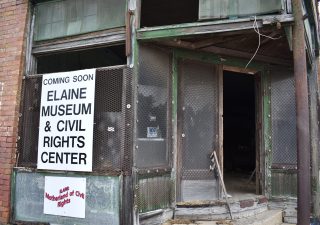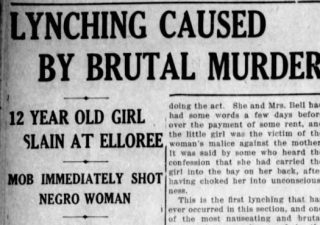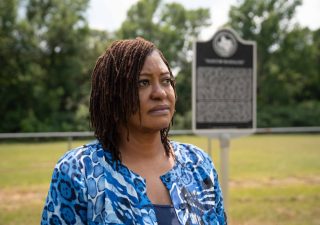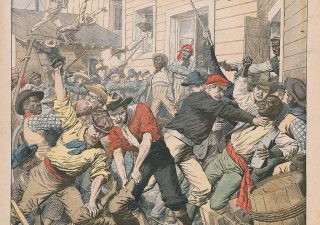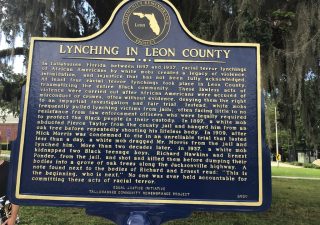Historians say the massacre claimed five white lives and more than 200 Black lives, though the true number of Black deaths is unknown and some estimates put it much higher.
History focuses on men, but Black women were lynched, too
Between 1865 and 1965, there were nearly 5,000 racial terror lynchings of Black people, according to a Howard Center analysis of the Beck-Tolnay inventory of Southern Lynch Victims and the Seguin-Rigby National Data Set of Lynchings in the United States. Approximately 120 of those victims — about 3% — were Black women.
A pregnant woman’s lynching resonates through generations
Mary Turner was one of at least 11 victims in Georgia’s Lowndes and Brooks counties during what became known as the Lynching Rampage of 1918.
Newspapers falsely reported Slocum Massacre as a race revolt
The violence, known as the Slocum Massacre, was incited by a rumored uprising that never happened.
Annapolis confronts a legacy of lynchings and racial terror
The city of Annapolis — and its newspaper, The Capital — have embraced the need for accountability in facing its murderous and bigoted past.
Atlanta newspapers’ white supremacy fueled 1906 race massacre
In 1906, two of Atlanta’s most prominent newspapermen committed an act that many of today’s journalists would consider a sin.
Newspapers called Tallahassee lynching victims animals, insane
The language used in news coverage of lynchings often sought to justify the deaths of Black victims to white readers.
Kentucky newspapers often blamed Black victims for lynchings
Kentucky newspapers contributed to a climate of terror by calling the victims bad negroes, “barbaric” or lazy and promiscuous.
Columbus, Mississippi, newspapers were not innocent bystanders to racist violence
Lynchings, were a form of racial terror, said historian Elijah Gaddis, an assistant professor of history at Auburn University. No state used the tactic more than Mississippi.
Yazoo City’s newspaper provided a forum for its pro-lynching readership
The Yazoo City Herald, a white-owned newspaper, covered lynchings, sometimes delivering inconsistent or problematic reporting.

